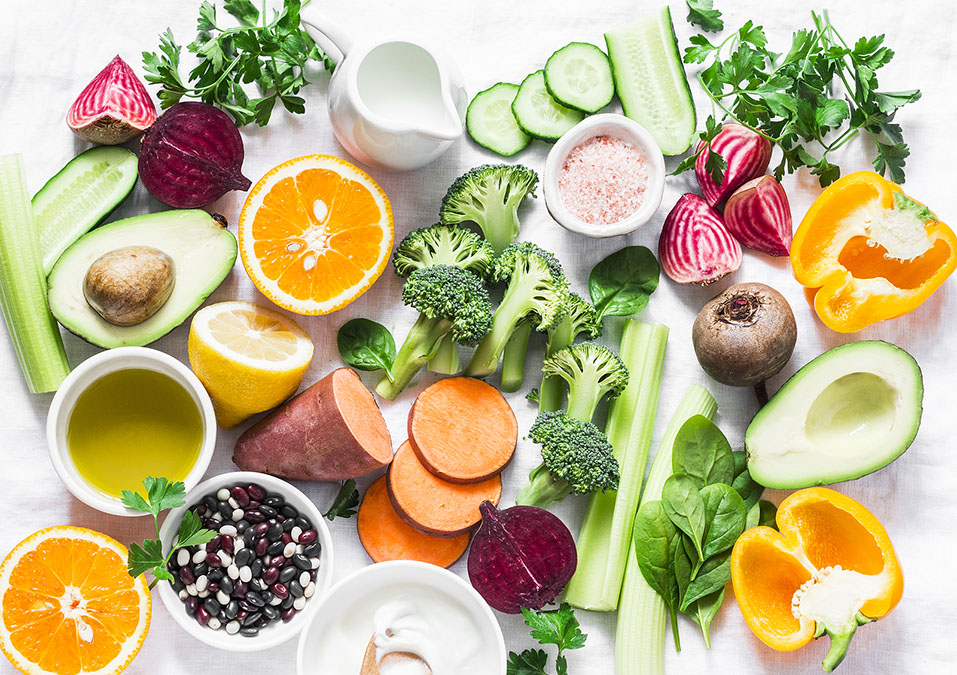 Researchers have suspected for some time that the abnormal alpha-synuclein fibers that accumulate in the brains of Parkinson’s patients originally come from their guts, from where they rise into their brains.
Researchers have suspected for some time that the abnormal alpha-synuclein fibers that accumulate in the brains of Parkinson’s patients originally come from their guts, from where they rise into their brains.
A new study in npj Parkinson’s Disease now shows exactly how the process works. It identifies the lack of one common vitamin as the main cause.
Best of all, you can get these vitamins from common foods or get them dirt cheap in your local supermarket. Start treating your Parkinson’s disease today.
The team from Nagoya University Graduate School of Medicine in Japan began by investigating precisely which gut bacteria, genes, and other physiological elements are different in Parkinson’s patients.
They obtained their data from various sources, including five datasets from Japan, the USA, Germany, China, and Taiwan. In addition to these, they examined the fecal samples of 94 Parkinson’s patients and 73 of their healthy peers.
They compared all of these samples to see how Parkinson’s patients’ guts differed from those of healthy people.
This analysis revealed several important facts:
-
1. Surprisingly, Parkinson’s patients had a higher diversity of gut bacteria compared to healthy controls.
2. Parkinson’s patients had more Akkermansia muciniphila and less Roseburia intestinalis and Faecalibacterium prausnitzii.
3. Getting to the three most important discoveries, Parkinson’s patients showed a big decrease in the bacterial genes responsible for producing essential B vitamins, riboflavin (B2) and biotin (B7).
4. Parkinson’s patients had lower levels of short-chain fatty acids and polyamines, both crucial for maintaining the gut lining.
5. The genes for vitamin B2 and B7 production were positively linked with short-chain fatty acids and polyamines, suggesting these vitamins help maintain healthy levels of these important compounds.
What does all this mean?
It’s simpler than it looks:
-
1. Short-chain fatty acids and polyamines are essential for maintaining the intestinal barrier, which prevents toxins from entering the bloodstream and reaching the brain.
2. Vitamins B2 and B7 help to produce these two compounds.
3. Parkinson’s patients have too little vitamin B2 and B7, as well as too little of these compounds, to maintain their intestinal barrier.
4. As a result, toxins leak from their intestines into their blood streams where they damage alpha-synuclein proteins.
5. These damaged proteins then make their way into the patients’ brains, where they accumulate and cause Parkinson’s symptoms.
This means that obtaining more vitamins B2 and B7 can help us prevent Parkinson’s by helping to maintain our gut linings.
You can do this by eating eggs, almonds, mushrooms, dairy, and leafy greens. Alternatively, a good vitamin B-complex supplement can provide all the B vitamins you need.

 Overcoming IBD
Overcoming IBD Multiple Sclerosis
Multiple Sclerosis Banishing Bronchitis
Banishing Bronchitis Gum Disease Gone
Gum Disease Gone Overcoming Onychomycosis
Overcoming Onychomycosis Neuropathy No More
Neuropathy No More The Prostate Protocol
The Prostate Protocol Brain Booster
Brain Booster
 Ironbound
Ironbound
 Solution for Shingles
Solution for Shingles
 The Bone Density Solution
The Bone Density Solution
 The Ultimate Healing Protocol
The Ultimate Healing Protocol
 The Parkinson's Protocol
The Parkinson's Protocol
 The Chronic Kidney Disease Solution
The Chronic Kidney Disease Solution
 Overthrowing Anxiety
Overthrowing Anxiety The Fatty Liver Solution
The Fatty Liver Solution The Hypothyroidism Solution
The Hypothyroidism Solution
 The End of Gout
The End of Gout The Blood Pressure Program
The Blood Pressure Program
 The Oxigized Cholesterol Strategy
The Oxigized Cholesterol Strategy
 Stop Snoring And Sleep Apnea Program
Stop Snoring And Sleep Apnea Program
 The Arthritis Strategy
The Arthritis Strategy The Vertigo & Dizziness Program
The Vertigo & Dizziness Program The 3-Step Diabetes Strategy
The 3-Step Diabetes Strategy Hemorrhoids Healing Protocol
Hemorrhoids Healing Protocol The Erectile Dysfunction Master
The Erectile Dysfunction Master Weight Loss Breeze
Weight Loss Breeze The IBS Program
The IBS Program The Insomnia Program
The Insomnia Program The Migraine and Headache Program
The Migraine and Headache Program The Neck Pain Solution
The Neck Pain Solution The Menopause Solution
The Menopause Solution The Ejaculation Master
The Ejaculation Master The TMJ Solution
The TMJ Solution The Acid Reflux Solution
The Acid Reflux Solution The Fibromyalgia Solution
The Fibromyalgia Solution The Psoriasis Strategy
The Psoriasis Strategy